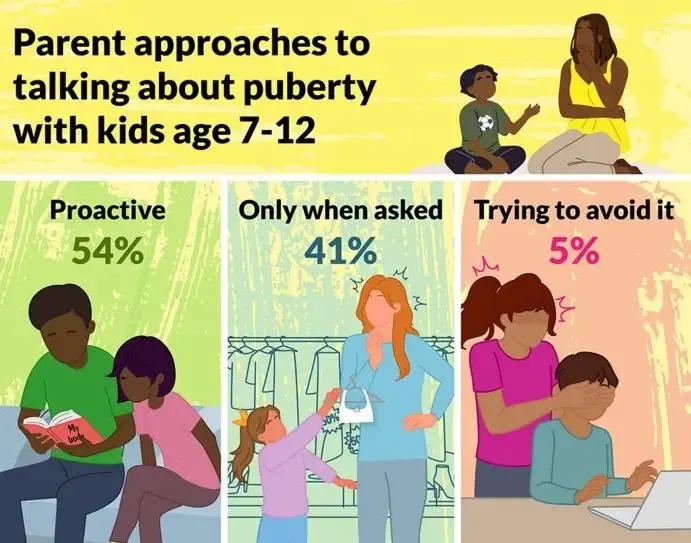US Parents Divided on Ideal Age for Discussing Puberty with Children: Research

Synopsis
Key Takeaways
- Parents are divided on the right age to discuss puberty.
- Most agree that communication about puberty is essential.
- Starting early can alleviate children's confusion and anxiety.
- Parents worry about embarrassment and saying the wrong thing.
- Consistent conversations are key as children grow.
New York, April 21 (NationPress) Parents are divided on the appropriate age to initiate discussions about puberty with their children, according to a study conducted in the US on Monday. Most parents recognize the significance of these conversations, yet the timing and method for starting them often remain ambiguous.
The University of Michigan Health C.S. Mott Children’s Hospital National Poll on Children’s Health highlights some common hurdles for parents: determining the right age to discuss physical changes and whether to include discussions about sex.
“It’s easy to presume that a child is too young for discussions about puberty, but many parents are surprised to find their tweens already displaying signs of puberty or posing unexpected questions about body changes,” stated Mott Poll Co-Director Sarah Clark.
Initiating these conversations early allows parents to tailor the message appropriately for different ages, helping children understand what to expect and alleviating feelings of confusion or anxiety.
If parents don’t take initiative in these discussions, children may seek information from other sources, such as peers, social media, or television, Clark added.
Parents surveyed shared various strategies, concerns, and gaps they face when preparing their tweens for this critical developmental phase.
About half of surveyed parents described their approach to discussing puberty as proactive, while two in five only engage in the topic when their child raises questions. Another 5 percent avoid the discussion entirely.
One in five parents expressed concerns about feeling embarrassed, and one in six worried they might say something inappropriate regarding the topic.
Among parents of children aged 10-12 years, a quarter indicated their child is uninterested in discussing puberty, while nearly a third of parents with children aged 7-9 years believe their child is too young to comprehend, according to the findings.
Some of the reluctance to discuss this topic may arise from parents’ own upbringing, Clark observed.
“Whether they acknowledge it or not, parents may carry their own experiences into their parenting style,” Clark remarked. “Many parents noted that they had minimal or no discussions about puberty during their own youth. If puberty was regarded as an awkward or uncomfortable subject while growing up, this can complicate their ability to initiate the conversation.”
Another frequent challenge mentioned by parents was the timing and extent of discussions around sex and reproduction.
“Initial conversations should concentrate on informing children that they will undergo physical and emotional changes, assuring them that these changes are a normal part of growing up. Discussions about sex can develop gradually over time,” Clark advised.
Many parents also reported that their child has inquired about their own body, their parents’ bodies, or other puberty-related subjects.
“Consistent, supportive conversations are crucial as children mature and encounter new stages of puberty,” she concluded.









